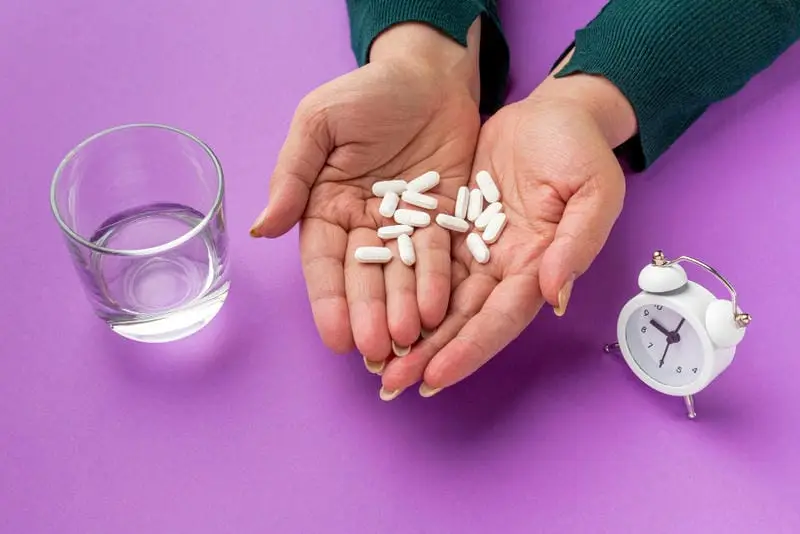- Published on: Aug 14, 2021
- 2 minute read
- By: Dr Rajan Choudhary
Involuntary Diaphragm Contractions: Why You Get Hiccups
Embarking on the enigmatic realm of hiccups, we delve into the perplexing world of these involuntary spasms that often disrupt our daily lives. Hiccups, seemingly innocuous yet vexingly persistent, prompt a quest to decipher the triggers and unravel the underlying mechanisms governing these rhythmic contractions of the diaphragm.
The hiccup, an age-old mystery, has long perplexed both the curious and the afflicted. From their origins to potential meanings, we navigate the labyrinth of hiccup-induced discomfort, aiming to demystify this seemingly mundane bodily phenomenon. As we explore the diverse array of triggers, from spicy meals to unexpected laughter, we seek to understand the physiological intricacies at play. Hiccups, though generally harmless, have left many seeking respite from their persistent cadence. Our journey extends to the realm of solutions, investigating both traditional and modern approaches to alleviating this peculiar bodily hiccup.
Furthermore, in an era of technological advancement, we unveil the convenience of online doctor consultations, offering a modern avenue for seeking expert guidance and potential remedies to bid farewell to the relentless diaphragm dance. Join us as we unravel the mysteries, decode the signals, and embrace a hiccup-free existence.
What Are Hiccups
Hiccups are more than just an inconvenience; they're the result of involuntary contractions of the diaphragm – the muscle responsible for our breathing. These contractions are accompanied by an abrupt closure of the vocal cords, producing the characteristic "hic" sound. But what triggers this diaphragmatic turmoil?
causes of hiccups
-
Spicy Foods and Carbonated Drinks: Indulging in your favorite spicy curry or sipping on a fizzy beverage can irritate the diaphragm and lead to hiccups.
-
Sudden Changes in Temperature: A quick transition from a hot to a cold environment or vice versa can trigger hiccups.
-
Excitement or Stress: Emotional extremes, be it excitement or stress, can cause your diaphragm to go haywire.
Decoding the Meaning Behind Hiccups
Understanding the Science: Hiccups mean to be common, but they're not entirely understood. It's believed that the sudden intake of air during hiccups may serve some evolutionary purpose. While in the womb, the fetus practices breathing through amniotic fluid, and hiccups may be a vestige of that process.
Persistent Hiccups: When Should You Worry while most hiccups resolve on their own, persistent hiccups lasting more than 48 hours could indicate an underlying health issue. It's essential to pay attention to your body and consult with a healthcare professional if your hiccups become chronic.
hiccups treatment
Home Remedies
-
Hold Your Breath: Take a deep breath, hold it in for as long as you can, and exhale slowly. This helps reset your diaphragm.
-
Sip Cold Water: Slowly sipping on cold water can soothe an irritated diaphragm.
-
Swallow a Teaspoon of Sugar: The graininess of sugar can stimulate the vagus nerve and put an end to hiccups.
Medical Interventions
-
Prescription Medications: In severe cases, a doctor may prescribe medications that relax the diaphragm.
-
Hypnosis and Acupuncture: Alternative therapies like hypnosis and acupuncture have shown promise in alleviating chronic hiccups.
Online Doctor Consultation for Hiccup Relief
The Convenience of Online Consultations: In today's fast-paced world, visiting a doctor for every hiccup episode may not be practical. Online doctor consultation offers a convenient and efficient way to seek medical advice from the comfort of your home. Here's why it's a game-changer:
-
Accessibility: Access a qualified healthcare professional without the hassle of scheduling appointments or commuting to a physical clinic.
-
Time-Efficiency: Receive prompt medical advice, diagnosis, and treatment plans without the wait time associated with traditional in-person visits.
-
Cost-Effective: Online consultations are often more affordable than traditional healthcare services, making quality healthcare accessible to a broader audience.
Choosing the Right Platform
-
Check Credentials: Ensure the online platform is reputable and employs licensed healthcare professionals.
-
User Reviews: Look for reviews from other users to gauge the platform's reliability and effectiveness.
Conclusion:
Understanding the reasons behind hiccups is the first step toward finding relief. From home remedies to medical interventions and the convenience of online doctor consultations, you have a range of options to explore. Next time your diaphragm decides to break into an impromptu dance, armed with this knowledge, you can take action to bring the curtain down on the hiccup show. Embrace a hiccup-free future, and remember, relief may be just a click away with online doctor consultations.
Read FAQs
A. Yes, hiccups result from involuntary contractions of the diaphragm, the muscle beneath the lungs crucial for breathing.
A. Diaphragm spasms causing hiccups can be triggered by various factors such as sudden changes in temperature, overeating, or irritation of the diaphragm.
A. Scientifically, hiccups occur due to a sudden contraction of the diaphragm, followed by the closure of the vocal cords, producing the characteristic "hic" sound. The precise triggers can vary, and understanding them aids in finding effective remedies.









